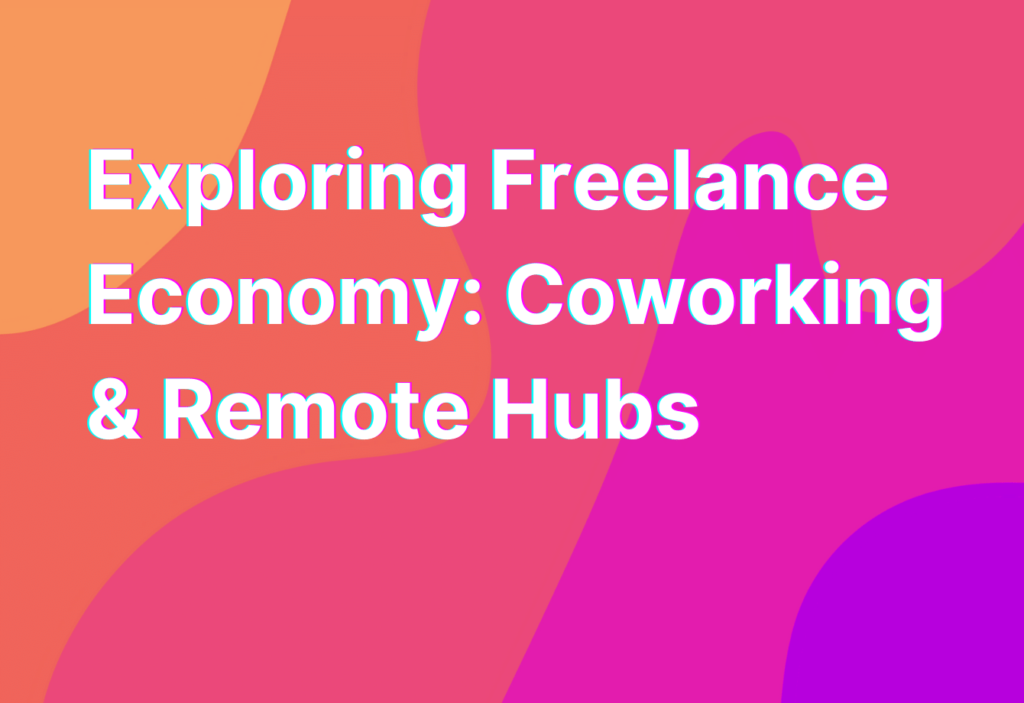Exploring Freelance Economy: Coworking & Remote Hubs
Hey there, fellow remote workers! Today, we’re diving into the exciting world of the freelance economy and exploring the benefits of coworking spaces and remote hubs. As someone who has been working remotely for the past 10 years, I can tell you that these spaces have revolutionized the way we work and connect with others in the digital age. So, grab your favorite cup of coffee and let’s get started!
The Rise of the Freelance Economy
The freelance economy has been on the rise in recent years, with more and more professionals opting for the flexibility and freedom that comes with working remotely. According to a study by Upwork, the number of freelancers in the United States alone is projected to reach 86.5 million by 2027. That’s a staggering number!
With the rise of the freelance economy, the need for dedicated workspaces that cater to remote workers has also increased. This is where coworking spaces and remote hubs come into play.
What are Coworking Spaces?
Coworking spaces are shared workspaces that bring together individuals from different industries and backgrounds to work in a collaborative environment. These spaces provide freelancers with a professional setting where they can work, network, and collaborate with like-minded individuals.
One of the biggest advantages of coworking spaces is the sense of community they offer. Working remotely can sometimes be isolating, but in a coworking space, you’re surrounded by other professionals who are facing similar challenges and can offer support and advice. It’s like having your own little work family!
Another great thing about coworking spaces is the flexibility they provide. Most spaces offer different membership options, allowing you to choose the one that best fits your needs. Whether you need a dedicated desk or just a hot desk for a few hours, there’s a membership option for everyone.
Some popular coworking spaces include WeWork, Regus, and Impact Hub. These spaces often provide additional amenities such as meeting rooms, event spaces, and even free coffee (because let’s face it, coffee is essential for remote workers!).
Remote Hubs: Taking Coworking to the Next Level
While coworking spaces are great, remote hubs take the concept to the next level. Remote hubs are specifically designed for remote workers and digital nomads, offering not only workspace but also accommodation and a supportive community.
Imagine working from a beautiful beachside villa in Bali or a cozy cabin in the mountains of Colorado. Remote hubs provide the opportunity to live and work in stunning locations while still being connected to a community of like-minded individuals.
These hubs often organize networking events, workshops, and social activities to foster collaboration and create a sense of belonging. It’s a great way to meet new people, learn new skills, and expand your professional network.
Some popular remote hubs include NomadX, Roam, and Outsite. These hubs are popping up all over the world, catering to the growing number of remote workers who crave adventure and flexibility.
Wrapping Up
As the freelance economy continues to grow, coworking spaces and remote hubs are becoming essential for remote workers. They provide a sense of community, flexibility, and the opportunity to work from amazing locations around the world.
If you’re interested in learning more about the benefits of coworking spaces and remote hubs, check out our article on Hacktivism: Coworking & Remote Work Hubs. It’s a fascinating read that dives deeper into the topic and explores some of the most innovative spaces out there.
So, whether you’re a seasoned freelancer or just starting out on your remote work journey, consider giving coworking spaces and remote hubs a try. Who knows, you might just find your new work family and discover a whole new way of working!


